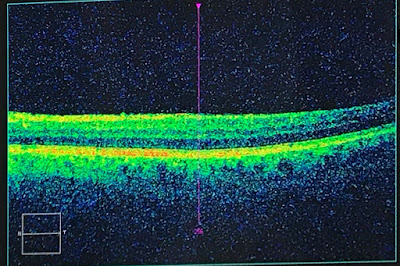 |
| From Center for Consumer Freedom |
Then today's LA Times had an editorial titled:
Beef sellers vs. faux meat (In the print version)
The beef industry is freaking out over plant-based meat? Too bad (online version)
It starts out telling us the impossible burger is hard to tell from the real thing. And that's scaring the meat industry which put out this ad through the Center for Consumer Freedom. There used to be research institutes that did reasonably objective research. Places like the Rand Corporation and the Brookings Institute. They may have some built in bias, but they had really smart researchers and they aimed at giving their clients the most accurate information they could. When wealthy conservatives saw the influences these 'think tanks' had, they began creating their own which would produce 'research' that supported their political pet projects.
Here's what the website Consumer Deception found when they asked "Consumer Freedom or Deception?"
"The Center for Consumer Freedom is a nonprofit corporation run by lobbyist Richard Berman through his Washington, D.C.-based for-profit public relations company, Berman & Co. The Center for Consumer Freedom, formerly known as the Guest Choice Network, was set up by Berman with a $600,000 “donation” from tobacco company Philip Morris.Sourcewatch's introduction to its research on the Center for Consumer Freedom says:
Berman arranges for large sums of corporate money to find its way into nonprofit societies of which he is the executive director. He then hires his own company as a consultant to these nonprofit groups. Of the millions of dollars “donated” by Philip Morris between the years 1995 and 1998, 49 percent to 79 percent went directly to Berman or Berman & Co."
The Center for Consumer Freedom (CCF) (formerly called the "Guest Choice Network (GCN)") is a front group run by Rick Berman's PR firm Berman & Co., originally primarily for the benefit of restaurant, alcohol, tobacco and other industries. It runs media campaigns that oppose the efforts of scientists, doctors, health advocates, animal advocates, environmentalists and groups like Mothers Against Drunk Driving, calling them "the Nanny Culture -- the growing fraternity of food cops, health care enforcers, anti-meat activists, and meddling bureaucrats who 'know what's best for you.'"
More recently CMD revealed that the Milwaukee-based Bradley Foundation is funding CCF to attack environmental groups with pop-up websites, like the "BigGreenRadicals.com" website, as well as to assist and train other Bradley-funded organizations in crisis communications (more below).[1]
CCF changed its name to the Center for Organizational Research and Education in early 2014[2] but uses both names.
CCF is registered as a tax-exempt, non-profit organization under the IRS code 501(c)(3). Its advisory board is comprised mainly of representatives from the restaurant, meat and alcoholic beverage industries. As of its most recent (2015) tax filing, Berman was its principal officer and held its books.[3]
The LA Times, to their credit, did a pretty strong editorial exposing the ad. Some excerpts:
"While it’s true that a plant-based meat alternative is processed — meaning altered in the preparation process, like just about everything else at the grocery store — and it’s true that eating one is not as healthy as say, a pile of raw vegetables, it’s best to take the ads with a generous pinch of salt. (Or sodium, which the ads correctly note is higher in precooked plant patties than in the beef kind.). . . "
"And if methylcellulose, a food thickener, sounds unappetizing, it’s really nothing compared with the E. coli or salmonella poisoning you can get from regular meat. The truth is that beef and other industrial meats are often packaged with things a lot more dangerous to human health than food additives. You want to talk about a public health threat? The widespread prophylactic use of human grade antibiotics in cows and other livestock has contributed greatly to the rise of lethal antibiotic-resistant organisms. . . "Then they take a totally different tack. They talk about eating burgers guilt free, because fake burgers don't increase climate change by cutting down the Amazon forest for cattle grazing. And then they talk about the brutal lives that beef and chicken lead before being slaughtered.
"So why do we still do it [eat meat]? Because meat tastes soooooo good and is such an efficient source of protein. Plus, did we mention it’s so tasty? A plant-based meat that satisfies meat cravings and delivers protein but with a smaller climate footprint is a potential environmental game changer and the reason Impossible Foods was one of the recipients of the U.N. Global Climate Action Award in 2019. No wonder the meat industry is on guard."
What I take from this is:
- Check the who the groups that sponsor such ads are. If their name seems suspiciously goody-goody, look them up online. There are lots of legitimate sites that check out such organizations and tell us who pays for them.
- Give credit to the LA Times for putting up a prominent editorial exposing an advertiser in their paper.
- Remember how much beef impacts climate change.



















